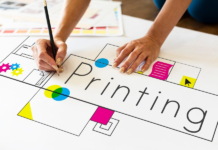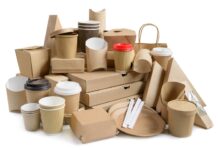The U.S., Environmental Protection Agency reports that 34% of the 251 million tons of waste we dispose of annually is recycled or composted. The rest ends up at a landfill where it’s incinerated or managed using other means.
Evidently, Municipal Solid Waste (MSW) management does a world of good. Imagine what life would be like without an efficient waste management process- our topic of the day. You can find more info by reading up on the subject.
Let’s face it; sustainable livelihoods hinge on our ability to manage waste materials responsibly. That implies our choices have a significant bearing on the lives we lead and could impact others directly or indirectly. Let’s explore the 3 Rs of proper waste removal and recycling with that in mind.
1. Recycle
Recycling involves transforming the materials we discard into new products. In so doing, we reduce the need for virgin resources. Recycling facilities do the hard work of refashioning discarded materials, meaning fewer materials pile up at landfills. For instance, corrugated cardboard can be recycled into paperboards and paper bags. Similarly, old aluminum cans may be smelted and used to craft bike frames and other items.
We find new uses for old items by recycling them into raw materials. That way, we extend the useful life of discarded items, which would otherwise end up in a dumpsite. Along the same lines, some centers specializing in managing toxic waste minimize our exposure to hazardous materials.
By consciously choosing recyclable products, we can make an important first step towards ensuring efficient recycling. To that end, here are possible approaches we can take:
- Purchasing produces crafted from recycled materials
- Buying recyclable products such as paper, plastic, and aluminum.
- Finding new ways to recycle various items to keep the process going
- Sticking to non-hazardous materials that don’t harm the environment and are easy to recycle
2. Reuse
Reusing entails finding new uses for items that we would otherwise discard. Before tossing out something you need, it might help to consider possible ways you or someone else might use it. For instance, you can refashion old bath towels by creating wash rags, or you may handcraft a tray out of old pieces of paper. Also, if some of your clothes don’t fit, consider giving them to others who might find them useful.
The ideas are limitless- all you need is to think outside the box. And this brings us to the issue of handling organic materials.
Unfortunately, organic matter at a landfill tends to decompose without access to oxygen. When that occurs, it leads to the production of greenhouse gases (methane), which does more harm than good when it permeates our atmosphere. Interestingly, MSW landfills emit the third-largest amount of methane across the U.S.
According to the United Nations Environment Program, methane is a significant contributor to a hazardous air pollutant responsible for one million premature deaths annually. Such stark statistics indicate that we need to put extra effort into reducing the pollutants that keep us from leading a healthy lifestyle.
To do this, we can start by segregating our waste into different garbage bags to make life easier for municipal staff. Alternatively, we can compost food scraps and other waste organically. By breaking down waste aerobically, we reduce the production of methane. In the process, less waste would end up in landfills, thereby reducing our dependence on such waste management facilities.
Besides, composting is environmentally friendly and less costly than alternatives such as incineration. Also, the latter approach poses a threat to public health, despite being efficient.
A good alternative to composting would be mulching, which allows us to reuse natural materials- grass cuttings, wood shavings, tree leaves- the list goes on – to control weed growth. Plus, mulch facilitates moisture conservation, guards against soil erosion, and can moderate soil temperature for more efficient plant growth.
3. Reduce
To effectively manage waste, we need to start at the source: us. If we can create less waste, our environment can stay clean, and our need to discard items would reduce. Less waste means less need to clean up. Also, reducing waste has a ripple effect: it diminishes our need to recycle or reuse. Some of the ways we can minimize our dependence on various resources include:
- Opting for multi-functional items
- Scaling down our need for disposable items such as paper cups and napkins
- Matching the products we buy with our needs
- Buying items that offer long-term value
Despite our culture of consumerism, we need to consider how our actions impact our lives and communities. There’s no point filling dumpsites and wasting energy while we can take proactive steps to lower our consumption of various resources.
Proper waste management is crucial for maintaining a clean and sustainable environment. Implementing the 3 Rs—Reduce, Reuse, and Recycle—can significantly minimize waste. For those looking to streamline their waste management practices, find more information on professional junk removal services in Lake Oswego, which can help efficiently manage and dispose of unwanted items.
Overall, by making small tweaks in our lifestyles, especially regarding waste management, we can reduce the waste in our cities’ landfills. Essentially, it would take our personal and collective responsibility. We owe it to ourselves to create a better life by integrating these waste-management principles into our daily lives. A good starting point would be to segregate our waste by hiring the right-sized dumpsters. From there, we can look into ways to reuse, recycle, and reduce waste.


























